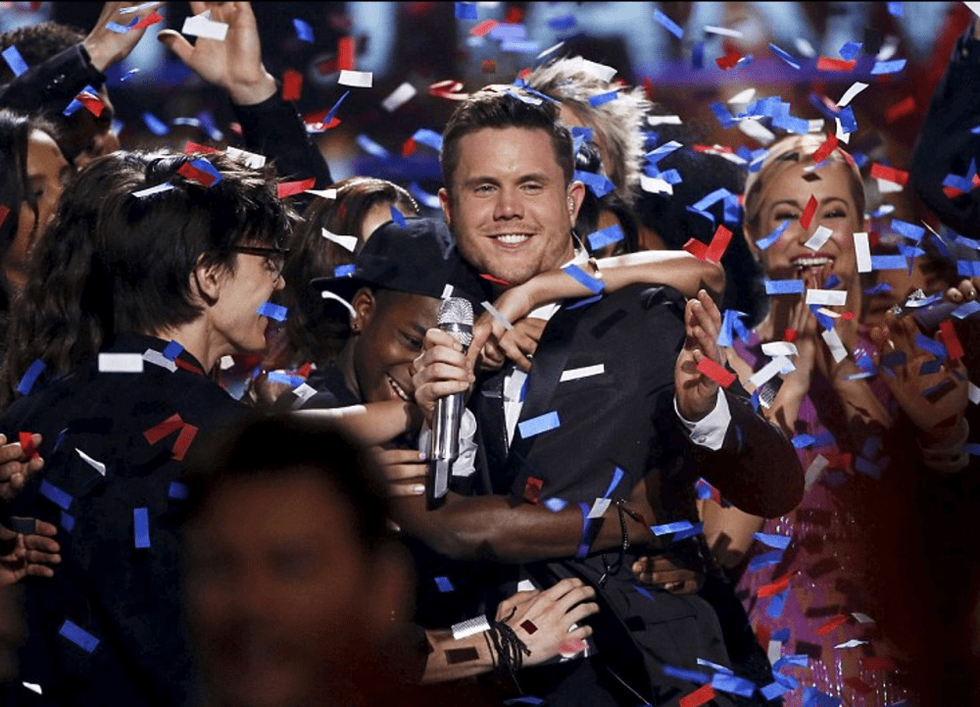Goodbye American Idol
American Idol takes its final bow: Pop culture phenomenon leaves a 15-season legacy of authenticity
Any way you slice it, American Idol made history with its 15-season run. Its impact on the music and television industries is deep and well-documented. It predicated, and was ultimately diffused by, the social media-driven fan culture we know today. It gave us the superhuman Ryan Seacrest. Perhaps most significantly, it had the phenomenal ability to reach across generations, class and race.
But on the heels of the tasteful series finale, which saw Trent Harmon take the 15th and final Idol title, I want to touch on something different: Idol’s legacy of authenticity, by way of its contestants.
I was reminded of this as dozens of former and lesser known contestants performed Thursday night during the nostalgic two-hour show. Producer Nigel Lythgoe grouped them by genre, which worked in some cases (the stirring soul medley) but not in others (the poorly designed country medley). Still, their brief moments on stage were gratifying for the same reason Idol could be, at its best: They were undeniably earnest.
The Idol alums, a diverse and immensely talented set of singers, made an impression not with their glory notes (though there were many) but with their sincerity and vulnerability, as the trio of season three’s Fantasia Barrino, Jennifer Hudson and LaToya London did on “Bridge Over Troubled Water.” These performances solidified what we always knew: that Idol’s greatest gift is how it elevated regular people — people who shared their fears and weaknesses and struggles generously, and sometimes painfully, with America.
Season 15’s finalists represented this exceptionally well: Soulful runner-up and 22-year-old single mom La’Porsha Renae spent the past few months elegantly channeling her triumph over domestic abuse into her performances, most intensely on Mary J. Blige’s “No More Drama.” Harmon,25, who grew up on a Mississippi farm, deepened his self-expression as the season progressed, climaxing with an exquisite rendition of Sia’s alcoholism-themed “Chandelier.” Even pop-rocker Dalton Rapattoni, 20, one of the series’ more mediocre third-place finishers, delivered brutally emotional performances that reflected his years of coping with bipolar disorder.
That openness carried into the finale, in the short amount of time it focused on season 15 rather than the series itself; when Seacrest announced the winner in the final minutes, Harmon’s tearful first words were, “I’ve worked so hard for this.” Renae embraced him tightly, appearing proud but visibly disappointed. It was a welcome moment of honesty from both before the confetti fell, and a nod to the relatability that connects every Idol alum, by and large, to his or her fans.
Earlier in the season, inaugural winner and superstar Kelly Clarkson proved this by devastating viewers with an inside-out performance of “Piece By Piece,” a song she wrote about her absent father. Though her pregnancy prevented her from joining the finale, a pre-taped medley of her hits aired at the beginning of the show, ending with a rousing, a capella version of her humble 2002 Idol winner’s single, “A Moment Like This."
Similarly, season four winner and country titan Carrie Underwood performed a thunderous version of "Something in the Water," a song that she infuses with gratitude.
So while Idol will be remembered as a pop culture force, its real legacy, I think, will be in the way it will make us continue to demand authenticity of our artists as we move into a new age of music. For every ill-chosen judge or theme night on Idol, for every infuriating producer manipulation or elimination, there were so many more deserving, authentic artists who let us in on their personal and artistic journeys to great reward.
Thursday night, among dozens of others, we heard season seven’s captivating consummate professional Carly Smithson, season eight’s explosive, raspy-voiced rocker Allison Iraheta, season 11’s powerhouse Jessica Sanchez —who received a standing ovation for her take on “The Prayer”— and season 13’s highly under-appreciated country-blues singer Kree Harrison.
We watched season 11’s Joshua Ledet give an outer-body performance of “It’s A Man’s Man’s Man’s World,” and season 13’s Amber Holcomb represent Houston with her lived-in swagger on “Here, There and Everywhere.” With its sheer volume of Idol-elevated talent, the series finale might have been the show’s most compelling defense yet against its detractors.
As for me, Idol, and all the joys and frustrations that came with it, was and always will be a part of my own journey. I carried the show with me through my twenties: through journalism school and my first job, through heartbreaks and milestones and transitions, and most recently through a move across the world to the Middle East.
Over the years, Idol has helped me find my writer’s voice and —via the numerous passionate, insightful writers who covered the show during the past 15 seasons—taught me how to maturely embrace my personal connection to art. If and when Idol returns to our living rooms, as Seacrest threatened in the last seconds of the finale, you can be sure I’ll be back for the ride.
Get more of Tara Seetharam's entertainment and pop culture musings on her website www.taraseetharam.com and follow her on Twitter @TaraAshley

